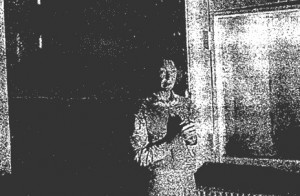 Date: Dale Arden
Date: Dale Arden
Author: 09/05/1990
“Killing the Cat” opens with a fragmented sequence of moments from a family’s
history, past and present. Although the links between the fragments at first
seem obscure, each moment has perfect emotional clarity. The effect is
kaleidoscopic, as little shards of atmosphere, each one razor sharp at the
edges, gradually begin to resolve themselves into a pattern.
In a decaying house that was once the family home, Danny prowls around
sniffing out the past like a bloodhound. If the past won’t deliver itself into
his hands, he’ll hunt it down.
Danny’s mother used to tell him “You’re alright son.” but that was before she
went through the psychiatric mill, before they “plugged her into the national
grid system”. She wasn’t mad, she was just “fatigued with sadness”. Danny’s
sister Shelagh once thought that the things her father made her do were
“alright”, because if it’s your Dad and he tells you it’s alright, it must be.
Lost in an endless loop of actions, reactions and repetitions, Danny can’t
see a way of getting clear of any of it. “I’m not alright and I tell you I’m
not alright.” Sociologically speaking everyone in “Killing the Cat” is a victim
of some kind; but it’s not a play about passivity and victimisation, it’s about
loving, being sad and getting on with it. The characters are dynamic, if
confused, participants in their own lives.
The play received the 1990 Verity Bargate Award, and quite right too. David
Spencer’s writing is poetic, on the ball and very much alive. He manages to
play out a thread of real humour in the grimmest situations while avoiding the
pit of saccharin that lurks around the “make ‘em laugh, make ‘em cry” school of
drama. This production by the Soho Theatre company is beautifully directed (by
Sue Dunderdale) and the cast of six are universally excellent. Highly
recommended.
 Posts
Posts